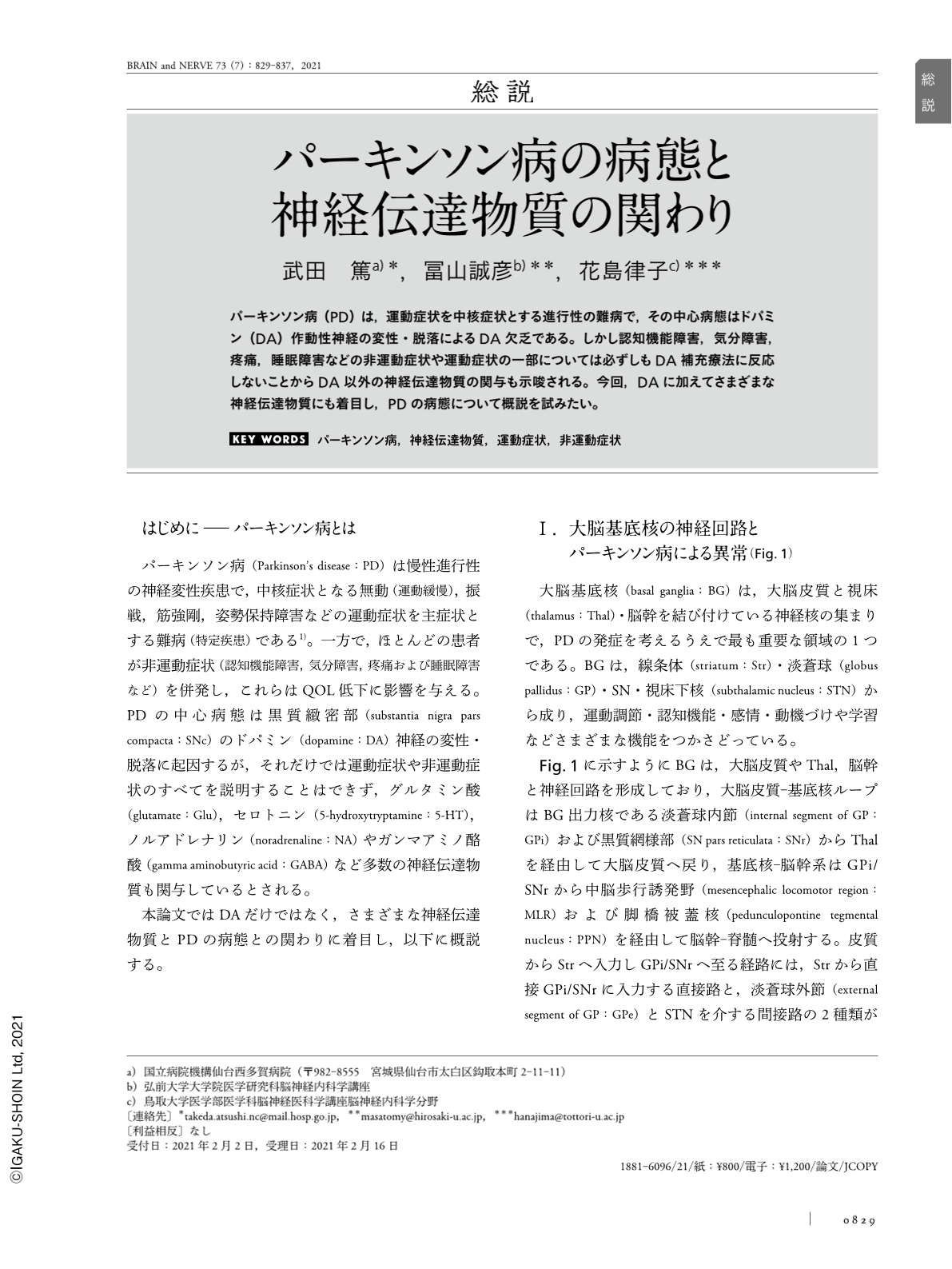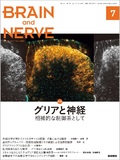Japanese
English
- 有料閲覧
- Abstract 文献概要
- 1ページ目 Look Inside
- 参考文献 Reference
パーキンソン病(PD)は,運動症状を中核症状とする進行性の難病で,その中心病態はドパミン(DA)作動性神経の変性・脱落によるDA欠乏である。しかし認知機能障害,気分障害,疼痛,睡眠障害などの非運動症状や運動症状の一部については必ずしもDA補充療法に反応しないことからDA以外の神経伝達物質の関与も示唆される。今回,DAに加えてさまざまな神経伝達物質にも着目し,PDの病態について概説を試みたい。
Abstract
Parkinson's disease (PD) is a progressive neurodegenerative disorder. The major motor symptoms of PD are mainly caused by dopamine (DA) deficiency due to the loss of dopaminergic neurons in the substantia nigra. Most patients also show non-motor symptoms, such as cognitive impairment, mood disturbance, pain, and sleep disturbance. These symptoms cannot be explained by DA deficiency alone and are likely involved with other neurotransmitter systems, including glutamate, serotonin, noradrenaline, or gamma aminobutyric acid. Other neurotransmitters may have therapeutic effects on some symptoms of PD. In this review, we discuss the pathophysiology of Parkinsonian symptoms, with a focus on neurotransmitters.
(Received 2 February, 2021; Accepted 16 February, 2021; Published 1 July, 2021)

Copyright © 2021, Igaku-Shoin Ltd. All rights reserved.


